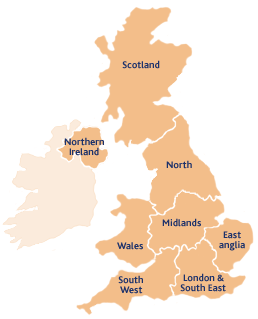Freedom is what you make of it

by David Fellows [i]
- UK Governments can no longer claim that EU rules prevent necessary changes to improve the UK economy or the life prospects of UK citizens. The UK’s decisions may have some tariff consequences but there is no EU veto or imperative that would lead us to doing those things that run counter to our best interests. After the deal was done in December the PM remarked “freedom is what you make of it”. Surely this will be his epitaph but will it be a celebratory one?
- The time is rapidly approaching when we must learn of the Government’s detailed plans for fulfilling the PM’s promise to level up the regions. We shall then see what effort and risks ministers and senior civil servants consider appropriate to honour the pact with those who made Brexit possible by changing allegiances at the last general election.
- Challenges abound for all participants. Local authorities, for instance, can offer valuable insights and assistance with delivery. Naturally they will want to put their own stamp on initiatives. In doing this some may make untenable demands, vilifying Government merely for political purposes. Making a start with the most constructive partners is surely important. An advance guard must be identified capable of identifying the route to success.
- The adequacy of key public sector organisations must be considered. For instance, how is the private sector to be effectively incentivised to participate? Can the woeful state of skill training be improved and properly presented to those who could benefit? How are start-ups and small businesses to be supported in a practical manner? How should business regulation be simplified to encourage enterprise while maintaining British values? How and to what extent could universities be tasked to make a meaningful contribution with funding skewed to reflect support for local enterprise development? How is the huge heft of public procurement to be employed? Is this the moment to create regional investment institutions to support private enterprise and if so, in what form?
- The private sector must be invited to make a major contribution to this agenda. Brexit has not shown the sector’s representative bodies in a particularly constructive light. They must demonstrate a capacity to contribute or be circumvented. One way or another the sector must be encouraged to provide ideas and resources that are appropriate and of long-term benefit to regional development.
- No one has ‘the’ answer. The public sector is diverse, resource hungry and often politically divided. The private sector is competitive, risk averse, self-interested. Representative bodies of all kinds have limited, common-denominator agendas. Consultancies tend to provide answers that they hope will lead to repeat business. This is not a task to be resolved purely by conference or working group. The answer must be derived from an unruly discourse that generates ideas from a series of interactions across all issues involving many different organisations and individuals, producing contributions that are more revealing than manicured.
- The general public must also have an understanding and an opportunity to contribute to this agenda. The remaking of the regions and the consequent clarification of the opportunities for London and the South East are about reshaping opportunities for communities, families and individuals.
- The task entails the rebalancing of the relationship between the wider London area and the regions. Ultimately the responsibility for a successful outcome of this immense task lies with Government. It should be approached with this clearly in mind. There must be both local and national ownership, public and private sector engagement. The national contribution is pivotal and should be recognised through branding and governance.
- This may not seem the best time for such an adventure. The virus has caused serious economic and personal damage. Restrictions will continue for some time while huge expenditure has already been incurred. Some say that this is the time to recognise and reinforce what works, time to throw everything behind the pulling power of London and the South East. They caution against forsaking the golden goose. Of course this is a fallacy borne of anxiety when the currency is realism. London does not work nor do the regions. The one lacks liveability, the other lacks opportunity both need attention. It is time to face facts, there was never a golden age.
- The digital technology had been slowly revealing our needs and suggesting options. Covid-19 has caused us to build on these developments, changing our attitudes and behaviour with astonishing speed. The Covid-19 experience has also provided Government with invaluable lessons about joined up working and the need to achieve steadfast alignment between messaging, planning and execution.
- Things will never be quite the same again. It is time to embrace change, we just need to do it properly.
[i] David Fellows has worked extensively in UK local government and in the Cabinet Office
as an advisor on local government reform. He is a director of PFMConnect, a
public financial management and digital communication consultancy: david.fellows@pfmconnect.com